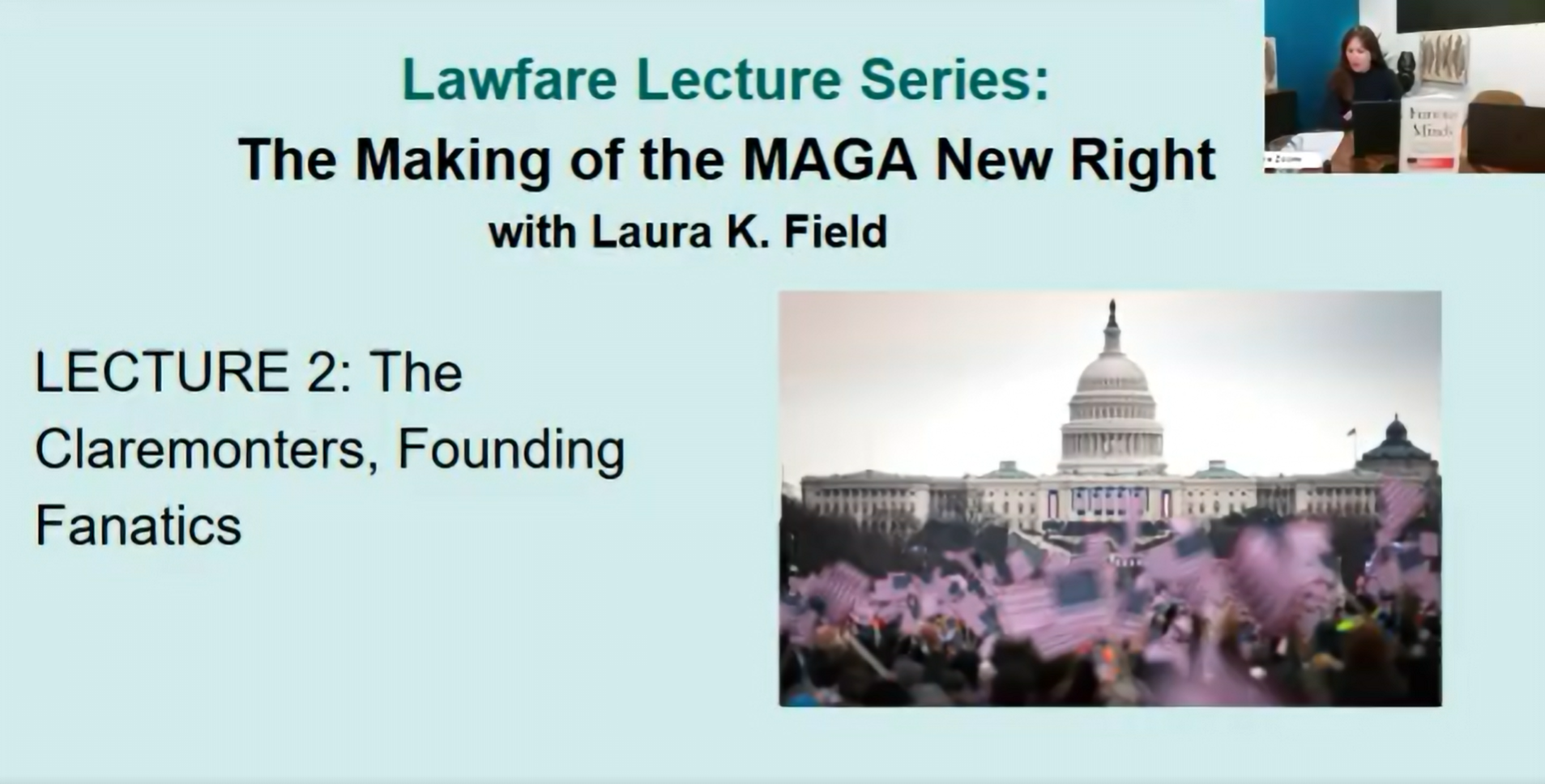The Week that Was: All of Lawfare in One Post
On Tuesday, we celebrated Lawfare’s 5th birthday, and in traditional fashion, we observed the day with a cake for the handmaidens of power. In all seriousness, we’d like to extend a very sincere thank you to all those who have helped Lawfare develop and grow over the last half decade!
Published by The Lawfare Institute
in Cooperation With

On Tuesday, we celebrated Lawfare’s 5th birthday, and in traditional fashion, we observed the day with a cake for the handmaidens of power. In all seriousness, we’d like to extend a very sincere thank you to all those who have helped Lawfare develop and grow over the last half decade!
The biggest news of the week came when Senator Barbara Mikulski (D-MD) announced her intentions to support the Iran nuclear deal, assuring that Congress will be unable to override President Obama’s veto should it pass a resolution of disapproval. After the announcement, I linked to Senator Mikulski’s letter of support, which explained why she thinks the deal was the best way to keep Iran from developing a nuclear weapon.
On Monday, I linked to the final Foreign Intelligence Surveillance Court order authorizing the extension of the NSA’s collection of bulk telephony metadata under Section 215 of the Patriot Act. Later in the week, Ben discussed the rather persistent “standing” confusion in Obama v. Klayman, which was vacated and remanded back to the D.C. Circuit on Friday.
Apropos of the NSA, Wells shared the video of a debate between former NSA Director Keith Alexander and Glenn Greenwald of the Intercept on privacy and security.
The former head of the Israel Defense Forces’ International Law Department, Daniel Reisner, completed his three-part series on the UN Commission of Inquiry Gaza Report (the first part can be found here). His second post explored who exactly was the target audience of the report, while his third piece examined the clash between human rights and law of war specialists.
Aaron Zelin brought us the latest Jihadology Podcast on Turkish jihadism at home and in Syria, featuring the folks from North Caucasus Caucus.
Ben linked to Brookings senior fellow William McCants’s excellent profile of Abu Bakr al Baghdadi, the leader of the Islamic State in Iraq and Syria, who McCants describes as a “true believer.”
Speaking of true believers, Ben also shared this week’s Rational Security Podcast with Shane Harris and Tamara Wittes. The gang discusses McCants’s new piece on al Baghdadi, General David Petraeus's plan to prompt the Al Qaeda awakening in Syria, and New York Times reporter Scott Shane’s new book on Anwar al Awlaki.
In dealing with radicalized folk on the homefront, the Justice Department has employed one tool above all others: indicting them before they depart for the battlefields of the Middle East on charges of material support for terrorism. Seamus Hughes wrote this week’s Foreign Policy Essay on the use of material support to prosecute radicalized young people in the United States, asking if there isn’t a better way to stem the tide of foreign fighters flowing into Iraq and Syria.
Don’t know much about Wu Tien Lu-Shou v. United States? Eugene Kontorovick explains what the case means for the political question doctrine as it relates to non-traditional military operations such as anti-piracy.
In the final Kyiv Dispatch, Stephanie Leutert described the rising challenges presented by Ukraine’s “volunteer battalions,” many of whom are ferociously nationalistic and almost as prone to attack government police as they are Russian-backed separatists.
This week saw yet another lame leak that the Obama administration is contemplating sanctions against China for its role in cyber espionage. In response, Jack shared his thoughts on the “harmful public hand-wringing on possible sanctions against China for cyber theft,” which instead strengthening U.S. deterrence is “devastating to our public and private security.”
Speaking of Chinese hacks, Paul Rosenzweig asked the Office of Personnel Management, “where’s my letter?” Paul is offended because he is yet to receive notification from the federal agency that his information has been compromised, let alone any support for securing his identity and personal information.
Carrie Cordero shared her story of standing atop the World Trade Center fourteen years ago, explaining that her experience in the days following 9/11 shaped her desire to “ensure that the nation addresses security threats directly, proactively, and thoughtfully.”
Ben also posted the week’s Lawfare Podcast, featuring a special summer re-airing of a previous discussion on a crucial legal question: how to legally prepare for an imminent zombie apocalypse. Do we need a prior AUMF for the un-dead? How else can we demonstrate our determination to not go quietly into the night?
Matt Waxman provided a review of his Lawfare-ish summer reading. His recommendations include Dead Wake: The Last Crossing of the Lusitania, The Officer and the Spy, and The Quartet: Orchestrating the Second American Revolution, 1783-1789.
Finally, we’ve that seen bears get anxious around drones, and that eagles will fight one to the death. This week, we learned that kangaroos take no drone junk; instead they just box them out of the sky.
And that was the week that was.



.png?sfvrsn=bd249d6d_5)

